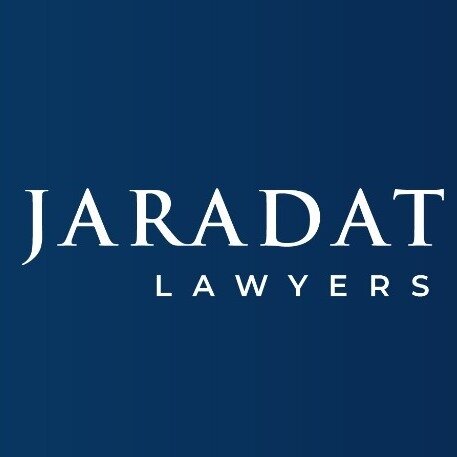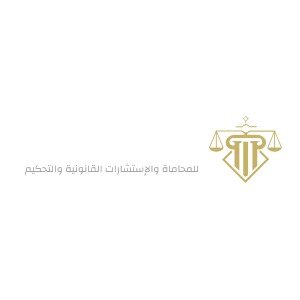Best Energy Regulatory Law Lawyers in Amman
Share your needs with us, get contacted by law firms.
Free. Takes 2 min.
List of the best lawyers in Amman, Hashemite Kingdom of Jordan
About Energy Regulatory Law in Amman, Hashemite Kingdom of Jordan
Energy Regulatory Law in Amman refers to the legal framework that governs the generation, transmission, distribution, and consumption of energy, including electricity, oil, gas, and renewable resources. In Jordan, this field is overseen by various governmental agencies and is designed to manage energy market operations, promote competition, ensure energy security, support sustainable development, protect consumers, and regulate the activities of both public and private sector entities involved in the energy sector. As Amman is the capital and economic hub, most regulatory decisions, licensing, and policy-making processes occur there, shaping how companies and individuals interact with the energy sector.
Why You May Need a Lawyer
Engaging a lawyer who specializes in Energy Regulatory Law can be essential in several scenarios:
- Navigating the licensing process for new energy projects or facilities
- Understanding compliance requirements for existing energy operations
- Negotiating energy supply contracts or power purchase agreements
- Representing businesses or individuals before regulatory authorities
- Handling disputes with regulatory agencies or other market participants
- Advising on investment opportunities and risks within the energy sector
- Ensuring adherence to environmental and safety standards related to energy projects
- Offering guidance on tariff structures and incentive programs
- Assisting with renewable energy project approvals and incentives
- Interpreting updates or reforms to energy regulations and legislation
Local Laws Overview
Jordan's legal framework for energy is shaped by several key pieces of legislation, regulations, and policy directives, all of which are most actively implemented in Amman. The cornerstone law is the Electricity Law, which establishes the regulation, licensing, and oversight of electricity generation and distribution. The Energy and Minerals Regulatory Commission (EMRC) is the main authority responsible for regulatory enforcement and oversight within the energy sector, including renewables, oil, natural gas, and mineral resources.
The government of Jordan has made significant commitments to diversify its energy mix, leading to an increased focus on renewable energy, especially solar and wind projects. Specific laws and regulations address aspects such as:
- Licensing and permitting for projects and operators
- Tariff setting and modification procedures
- Grid access rights and obligations
- Environmental and safety compliance
- Incentive schemes and investment promotion for renewables
- Dispute resolution mechanisms between stakeholders
- Consumer protection regulations
It is important to consult these laws and any subsequent regulatory amendments, as the legal landscape is dynamic and subject to frequent changes in line with economic, environmental, and social priorities.
Frequently Asked Questions
What is the main regulatory body for energy in Amman?
The Energy and Minerals Regulatory Commission (EMRC) is the primary regulatory authority overseeing the energy sector in Amman and across Jordan.
Do I need a license to generate and sell electricity?
Yes, any entity wishing to generate and sell electricity in Jordan must obtain the necessary licenses from the EMRC, including environmental and technical approvals.
What legal requirements apply to renewable energy projects?
Renewable projects must comply with licensing procedures, grid integration requirements, environmental impact assessments, land use regulations, and in some cases, specific incentive or tariff frameworks.
How are electricity tariffs set?
Tariffs are regulated by the EMRC, which considers factors such as production costs, investment needs, and consumer protection when setting or adjusting rates.
What should I do if I am in a dispute with an electricity supplier?
Most disputes are first handled by contacting the supplier and, if not resolved, escalating the matter to the EMRC or through the courts, depending on the issue.
Are there incentives for investing in renewable energy?
Yes, the Jordanian government provides several incentives for renewable energy investments, including customs exemptions, tax reductions, and guaranteed purchase agreements for certain qualified projects.
How can foreign investors participate in Jordan's energy sector?
Foreign investors must comply with investment regulations, obtain relevant licenses, and may benefit from incentives, provided they partner with local entities or fulfill national investment stipulations.
What environmental regulations affect energy projects?
Projects must undergo environmental impact assessments and comply with environmental preservation and safety laws stipulated by national authorities.
Can individuals or businesses connect their renewable energy systems to the national grid?
Yes, individuals and businesses can connect eligible renewable energy systems to the national grid, subject to EMRC approval and compliance with technical standards.
How can I stay updated on legal changes affecting the energy sector?
Regularly review announcements by the EMRC, consult specialized legal counsel, and follow updates published by relevant ministries and industry associations.
Additional Resources
For further information and support, consider reaching out to these organizations and resources:
- Energy and Minerals Regulatory Commission (EMRC) - Main regulatory authority for all energy-related laws and disputes
- Ministry of Energy and Mineral Resources (MEMR) - Policy setting, project facilitation, and investor guidance
- Jordan Investment Commission - Investment support and information on incentives
- Jordan Renewable Energy & Energy Efficiency Fund - Incentive programs and financing opportunities for sustainable energy
- Jordanian Bar Association - Directory of licensed legal professionals with expertise in energy law
Next Steps
If you require legal assistance in the field of Energy Regulatory Law in Amman, consider the following steps:
- Identify the specific nature of your legal issue or objective within the energy sector
- Gather all relevant documents such as contracts, permits, or correspondence with authorities
- Consult with a qualified lawyer or law firm that specializes in energy regulatory matters
- Request an initial consultation to evaluate your situation and receive tailored advice
- Ask about the lawyer's experience with similar issues and familiarity with local regulatory procedures
- Stay informed about ongoing legal and regulatory developments that may impact your case or project
Proper legal counseling can help navigate the complexities of compliance, investment, and dispute resolution, ensuring that your interests are protected and your operations align with the dynamic regulations governing Amman's energy sector.
Lawzana helps you find the best lawyers and law firms in Amman through a curated and pre-screened list of qualified legal professionals. Our platform offers rankings and detailed profiles of attorneys and law firms, allowing you to compare based on practice areas, including Energy Regulatory Law, experience, and client feedback.
Each profile includes a description of the firm's areas of practice, client reviews, team members and partners, year of establishment, spoken languages, office locations, contact information, social media presence, and any published articles or resources. Most firms on our platform speak English and are experienced in both local and international legal matters.
Get a quote from top-rated law firms in Amman, Hashemite Kingdom of Jordan — quickly, securely, and without unnecessary hassle.
Disclaimer:
The information provided on this page is for general informational purposes only and does not constitute legal advice. While we strive to ensure the accuracy and relevance of the content, legal information may change over time, and interpretations of the law can vary. You should always consult with a qualified legal professional for advice specific to your situation.
We disclaim all liability for actions taken or not taken based on the content of this page. If you believe any information is incorrect or outdated, please contact us, and we will review and update it where appropriate.















